Photographs: Reuters Vatsal Srivastava
The Finance Minister must deliver a business sentiment boosting budget and show that the new government can walk its talk, says Vatsal Srivastava.
The upcoming union budget represents the first real challenge to the honeymoon period the newly elected central government has enjoyed.
As promised during his election campaign, the economic revival of India's ailing economy has emerged as Narendra Modi's core political strategy.
Indian equity markets are trading near their all-time highs on the expectation that a new investment cycle will lead to higher corporate earnings and valuations.
However, the optimism in the financial markets has been slightly rattled by external global macro risks in the last few weeks.
The Iraqi crisis has pushed global crude prices higher by about 5 percent and comments from the US Federal Reserve has pushed the dollar higher against all major currencies including the Indian rupee.
…
Please click here for the Complete Coverage of Budget 2014 -15
Key issues Jaitley must address in the Budget
Photographs: Reuters
This is potentially a double whammy for India’s economy as not only would we be importing inflation via rising energy costs but a weaker Rupee would add to this cost burden thus weakening our deficit position.
Further, a weak monsoon will also be taking a toll on our GDP growth rate. At this juncture, the Finance Minister must deliver a business sentiment boosting budget and show that the new government can walk its talk.
To begin with, we urgently need an investment revival. Since the credit crisis, public and private investment fell from the peak of 26.2 per cent of GDP in FY 2008 to 17.3 per cent in FY 2013.
The market will be looking for positive policy announcements on the FDI front.
According to JP Morgan, historical trends suggest that there is a lag between liberalization in policy and an improvement in FDI inflows.
FDI inflows seem to be more strongly correlated with global liquidity and business confidence.
…
Please click here for the Complete Coverage of Budget 2014 -15
Key issues Jaitley must address in the Budget
Photographs: Reuters
With global liquidity available in the system, this would be the ideal time to announce liberalization in FDI policy in sectors such as insurance and defence (where foreign investment is currently limited to 26 per cent).
JP Morgan estimates FDI inflows of $10 billion over the next 5 years if FDI limits in the Insurance sector are raised from 26 per cent to 49 per cent.
Another potential positive step by the government would be allowing portfolio investments in private sector banks up to 74 per cent under the automatic route (currently this is capped at 49 per cent under the automatic route, but investments up to 74 per cent are allowed after subsequent government approval).
Further, market participants believe that the new government will finally power up the power sector.
Take coal for example- India, which has roughly close to 290 tons of coal reserves continues to import the commodity, being the world’s fourth largest international buyer and paying a premium of up to 25 per cent for its overseas purchases.
Last year, we imported $15 billion worth of coal (the overall trade deficit was $154 billion) according to HSBC. Coal India, a public company that produces some 80 per cent of the country’s coal, could do with a potential overhaul.
…
Please click here for the Complete Coverage of Budget 2014 -15
Key issues Jaitley must address in the Budget
Photographs: Reuters
Like most PSUs, it needs to raise its game to meet India’s challenges. A partial privatization could be on the agenda as a way to raise urgently needed investment funds but also to strengthen managerial discipline according to HSBC.
Other steps that could be taken to bring relief to this sector is concluding the debt restructuring scheme for the larger states and expediting competitive bidding for allocation of coal blocks for power generation according to a Deloitte study.
On the taxation side of things, it would be a positive surprise if some concrete announcements are made on the Goods and Service Tax (GST). This would be a crucial step in the direction of streamlining the administration of indirect taxes in India.
The market would be satisfied by just a roadmap to the GST being laid out as it would be unrealistic to assume the GST being implemented overnight. Further, some minor changes in the minimum tax free bracket might be announced to account for higher inflation.
…
Please click here for the Complete Coverage of Budget 2014 -15
Key issues Jaitley must address in the Budget
Photographs: Courtesy, Honda
Another interesting development to watch out for is the taxation of the ‘super-rich’. Last fiscal the government had introduced for a year, an additional surcharge of 10% on taxpayers with an annual income of over Rs 1 crore (Rs 10 million).
The draft Direct Taxes Code (DTC) also proposes a higher tax rate of 35 per cent on persons earning more than Rs 10 crore (Rs 100 million) a year. The FM must also address the issue of bringing back illegal assets abroad through the tax net.
Mr Jaitley must address the manufacturing sector which experienced its worst performance in over 30 years (a contraction of 1 per cent in IIP). Fiscal prudence will also be a key issue in the FM speech.
Restricting the subsidy bill to below 2 per cent of GDP from the current level of 2.26 per cent of GDP should be enough to achieve the target of the fiscal deficit being 4.1 per cent of GDP.
Remember that this metric is the focus point of rating agencies when gauging our credit worthiness.
If indeed there is a global risk off environment with funds flowing from emerging markets to the west, India can face significant bond outflows on the back of a weak debt rating.
…
Please click here for the Complete Coverage of Budget 2014 -15
Key issues Jaitley must address in the Budget
Photographs: Reuters
Social welfare schemes such as the food security bill and MNREGA as well as curbing fertilizer subsidies will be an important potential talking point in the FM speech.
On this point, it is important to remember that these schemes have been argued to be a major factor in rising rural inflation. Mr Jaitley must also address the bottlenecks which have caused supply side inflation if India is to achieve its target of CPI at 6% by 2016.
A few other issues market participants would be looking for the FM to touch upon are the revival of special economic zones (SEZs), on the process of how public sector banks whose non- performing assets have risen to more than 2 lakh crore at the end of September 2013 are recapitalised, boosting infrastructure investment and SME financing and lastly education and health care.
The global economy is finally showing a sustained economic recovery. The real economies of the Euro zone, United States, Japan and all other developed markets have all shown an uptick in their leading economic indicators.
Further, their central banks and policymakers stand ready to do whatever it takes to see their respective recoveries through. Even China’s economy seems to have bottomed out and fears of a ‘hard landing’ have all but disappeared.
With the tailwind of such a positive global macro backdrop, it would be a pity if the NDA government does not layout policies and initiate reforms which help India achieve its potential GDP growth rate of around 7.5 -8.5 per cent.
Mr Jaitley must present a budget which does not sell India short.
Please click here for the Complete Coverage of Budget 2014 -15

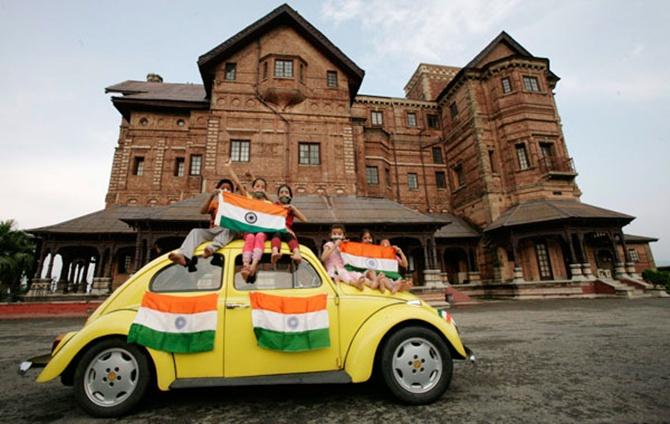
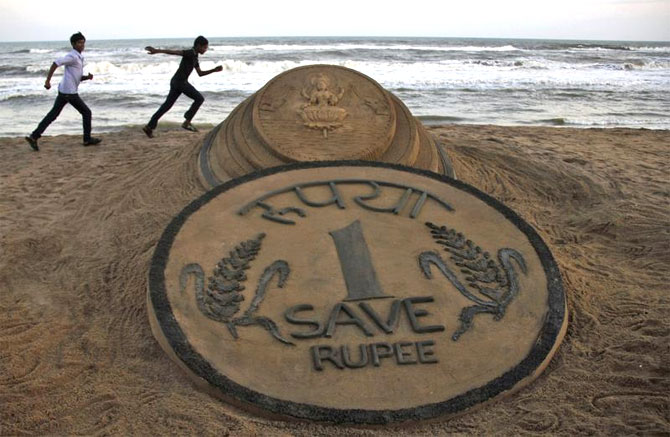
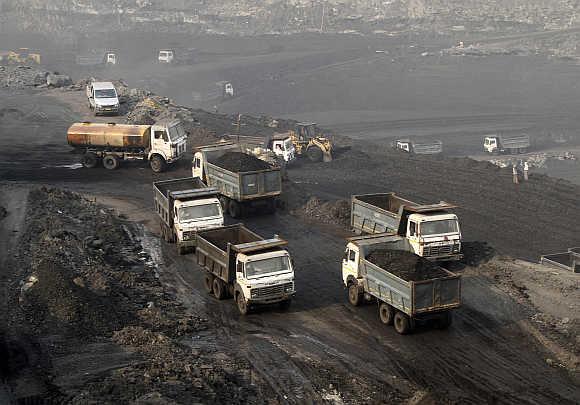
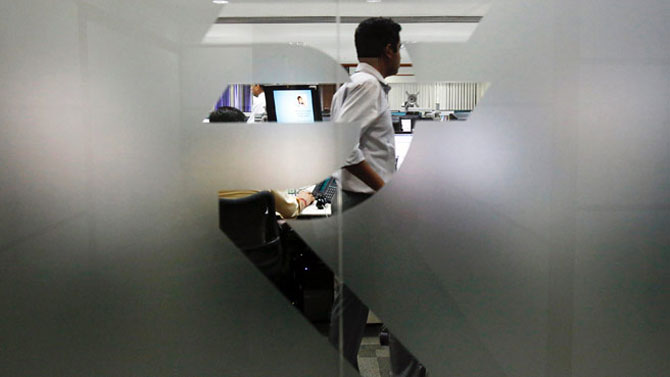
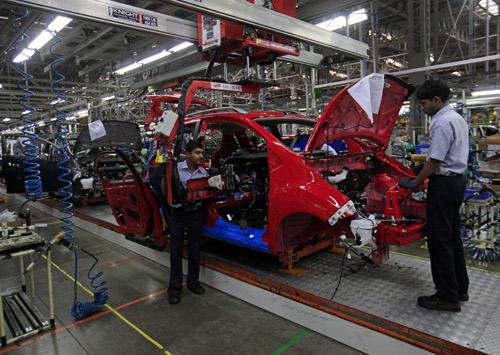

article